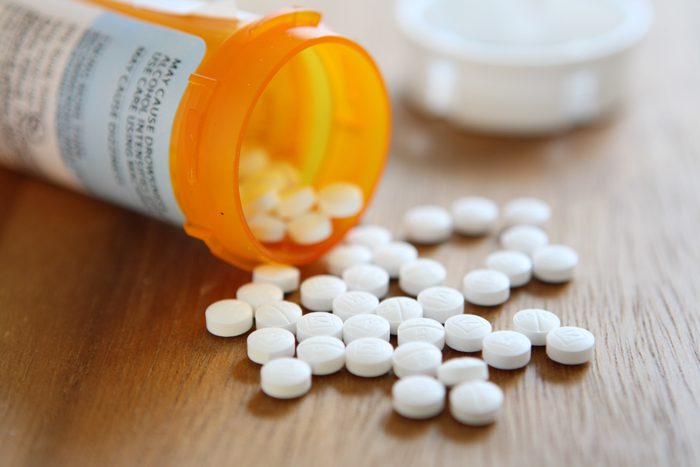By Sandy Baker
The numbers are worrisome.
Every day, more than 1,000 people are treated in an emergency department for some level of prescription drug abuse, according to the U.S. Centers for Disease Control and Prevention. The agency also says that, since 1999, the number of deaths from these drugs have quadrupled. From 1999 through 2015, more than 183,000 people have died as a result of overdosing on prescription opioids.
For many of them, walking the fine line between using prescription drugs and abusing them was just too hard to do. If you or your loved one are suffering from any type of drug abuse, including opioid abuse, now is the time to take action. Call The Ranch at Dove Tree for the support and guidance you need.
Are You Using or Abusing?
Opioids are one of the most challenging of all types of drugs because they often are used as a treatment option for pain or other illnesses. These drugs are necessary in many cases to help people recovering after an injury or surgery. Yet, using this medication is very hard to do properly. It can become addictive quickly and that could mean struggling for years with abuse.
There are some efforts being taken by doctors, hospitals, and the healthcare industry itself to step away from prescribing these types of drugs whenever possible. Yet, doctors ultimately have to make a key decision. Should they provide these drugs as a treatment option for pain or other symptoms or should they protect the patient from the long-term risks of developing an addiction?
Caregivers and individuals using opioids need to be vigilant about the use of any type of pain medication. If you are using these drugs for medication use, do so as seldom as possible. You also want to ensure that you are never taking more than what your doctor prescribes. As soon as possible, move to over-the-counter pain medications – according to your doctor’s orders – to avoid addiction risks.
Signs You Could Be Facing Addiction
At some point, people do cross that line. As noted above, thousands of people find themselves depending on these drugs and abusing them each day. Here are some signs that you or your loved one is actually abusing rather than using these drugs for medication.
- Your mind races. You are talking more than you normally do.
- You feel the need to hide your medications. You do not like telling people you are taking them.
- You are lying about taking them, how often you are taking them, or how much you take.
- You think about medications so much so that you are not as interested in other activities around you.
- You find yourself using fake prescriptions, going to multiple doctors for more help, or you are taking other people’s medications so you do not run out of your own.
- You are preoccupied about when you will get to take more.
- You have intense anxiety, agitation, or frustration when the medication is not available to you.
Keep in mind that someone who is abusing prescription drugs does not need to demonstrate every one of these aspects. Rather, they may only exhibit one or two. However, most people using these drugs will see their habits progressively worsen until they are experiencing more of these symptoms. This is a clear indication of addictive behavior.
When prescription drugs become very important to you, so much so that other factors in your life – from children to your job – are less important, there is a strong presence of addiction risk here. This is an instance in which you need help from a licensed professional.
For caregivers, it is also important to know that prescription drug addiction does not stop once a person is no longer taking the drug. There is a long recovery process that often is very difficult physically and mentally. If your loved one is using or abusing prescription drugs, a licensed alcohol and drug treatment facility is necessary to help them recover in a safe and protective environment.
Getting Help Doesn’t Have to Seem So Far Away
Anyone suffering from drug abuse should take action right away to get help. Your first step should be to contact the prescribing doctor to determine the best way to stop the treatment – there are non-addictive pain solutions available for most people.
From there, your goal will be to detox and then work on recovery. Prescription drug addiction recovery focuses heavily on helping you to recognize that you are abusing the drug and then providing you with tools and resources to help you to overcome this addiction. That is critical – you need to be willing to take the long path towards recovery.
What is Your First Step in Recovery?
If you are a caregiver, discuss these risks with your loved one. Provide a safe environment for a supportive recovery process. And, then call The Ranch at Dove Tree. Our team will work closely with you to support you in the process of helping your loved one.
For those who are struggling with addiction themselves, there is no time to lose. Contact our team at The Ranch at Dove Tree to learn more about the solutions we offer to help you to overcome the grip of addiction on your life. And, there is absolutely no reason or benefit to trying to overcome this condition on your own.
It is possible to stop using and abusing prescription drugs. It starts with a call to The Ranch at Dove Tree. We’re happy to help you.
Resources:
Prescription Opioid Overdose Data. Centers for Disease Control and Prevention.
Abuse of Prescription (Rx) Drugs Affects Young Adults Most. National Institute on Drug Abuse.







